Responding to Storms in the Gulf Coast

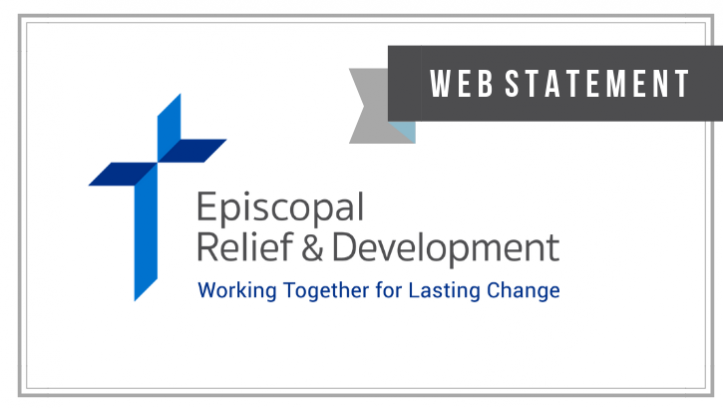 Responding to Hurricane Zeta in Georgia and Louisiana
Responding to Hurricane Zeta in Georgia and Louisiana
Web Statement
December 29, 2020
Episcopal Relief & Development is supporting the Episcopal dioceses of Louisiana and Atlanta as they provide assistance to underserved and marginalized communities impacted by Hurricane Zeta.
On October 28, Hurricane Zeta sped through Louisiana and Georgia as a Category 2 storm. The storm’s devastating winds caused havoc to the electrical infrastructure of the area. Over 100,000 residents in the Greater New Orleans area were out of power for at least 12 hours and even up to four days later, there were still thousands of residents without power. Similarly, Zeta left over 1 million residents in Atlanta without power, with nearly 350,000 still remaining without power Friday morning, October 30.
With Episcopal Relief & Development’s support, the Episcopal Diocese of Louisiana is leveraging existing relationships with local food pantries and a wholesale grocery distribution center to supply boxes of shelf-stable foods to marginalized communities in the New Orleans area. These supplies will help individuals and families who lost food due to the extended period of time without power. Many of them were already struggling to provide meals for their families as a result of the economic impacts of the COVID-19 pandemic.
Similarly, the Episcopal Diocese of Atlanta has identified communities in Cherokee and Cobb counties that were particularly vulnerable to the impact of Zeta. Diocesan staff and volunteers are distributing gift cards to help people purchase food and gas and providing direct aid to help with bills. The diocese is also supplying clothes.
“With so many families in the greater Atlanta and New Orleans areas experiencing food insecurity due to the COVID-19 pandemic, Hurricane Zeta’s effects were dire,” said Lura Steele, Program Officer, US Disaster, Episcopal Relief & Development. “Losing a refrigerator full of food can be devastating for people trying to get by with lost and reduced wages. Supplying food and basic necessities will provide immediate relief as communities determine how best to move forward.”
Please continue to pray for individuals and families in the Gulf Coast. Donations to the Hurricane Relief Fund will support Episcopal Relief & Development’s response to the record-breaking 2020 hurricane season and other storms.
For over 80 years, Episcopal Relief & Development has been working together with supporters and partners for lasting change around the world. Each year the organization facilitates healthier, more fulfilling lives for more than 3 million people struggling with hunger, poverty, disaster and disease. Inspired by Jesus’ words in Matthew 25, Episcopal Relief & Development leverages the expertise and resources of Anglican and other partners to deliver measurable and sustainable change in three signature program areas: Women, Children and Climate.
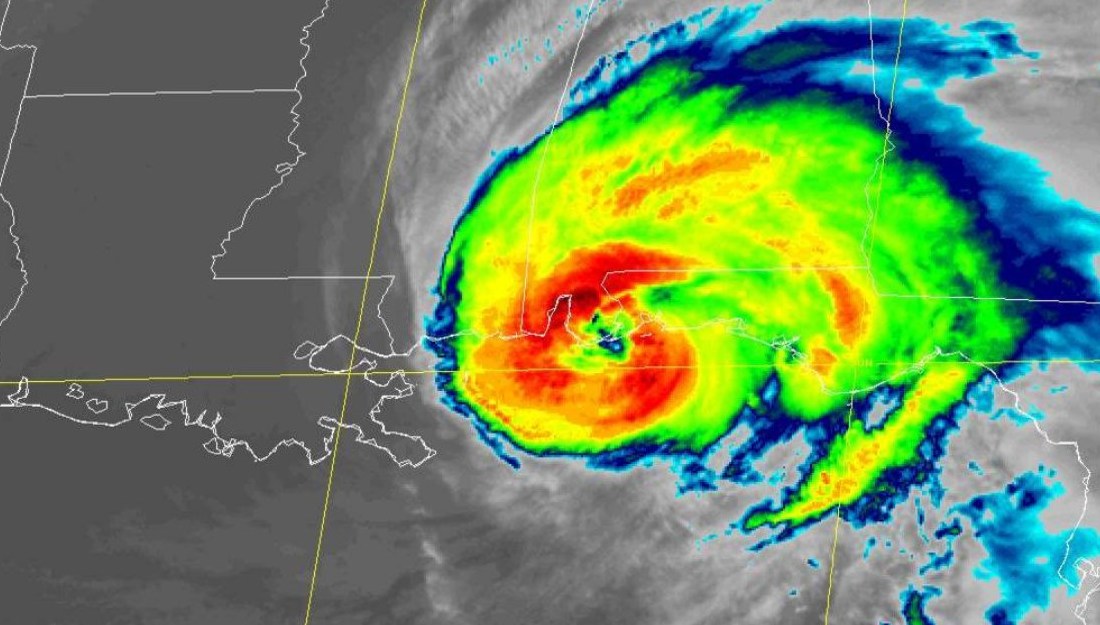
 Supporting Partners as Hurricane Sally Makes Landfall
Supporting Partners as Hurricane Sally Makes Landfall
Web Statement
September 16, 2020
Episcopal Relief & Development is supporting Episcopal Dioceses in the Gulf Coast in response to Hurricane Sally. The organization’s US Disaster team is holding daily coordination calls with the dioceses of Central Gulf Coast, Louisiana, Western Louisiana and Mississippi as they prepared for the hurricane and are now monitoring its impact.
Hurricane Sally made landfall early Wednesday morning in Alabama as a Category 2 hurricane, prompting water rescues, dropping trees and threatening catastrophic flooding. The storm is moving at only 3 mph, dropping more than 24 inches of rain in some areas.
“In the midst of a hurricane, it is important to remember to take steps to ensure your own safety,” said Tamara Plummer, Program Officer, Episcopal Relief & Development. “Once Hurricane Sally has passed, our partners will begin assessing the most urgent needs in their communities.”
Flood water can move quickly and is potentially dangerous so it is imperative not to walk, drive or swim in flooded areas. Generators should be used outdoors and away from windows due to potential carbon monoxide buildup. For more tips on staying safe during a hurricane, visit ready.gov/hurricanes.
Please continue to pray for individuals and families in the Gulf Coast. Learn more about how to prepare for disasters such as hurricanes and wildfires here. Donations to the Hurricane Relief Fund will support Episcopal Relief & Development’s response to Hurricane Sally and other storms.
For over 75 years, Episcopal Relief & Development has been working together with supporters and partners for lasting change around the world. Each year the organization facilitates healthier, more fulfilling lives for more than 3 million people struggling with hunger, poverty, disaster and disease. Inspired by Jesus’ words in Matthew 25, Episcopal Relief & Development leverages the expertise and resources of Anglican and other partners to deliver measurable and sustainable change in three signature program areas: Women, Children and Climate.
Photo Courtesy of National Hurricane Center
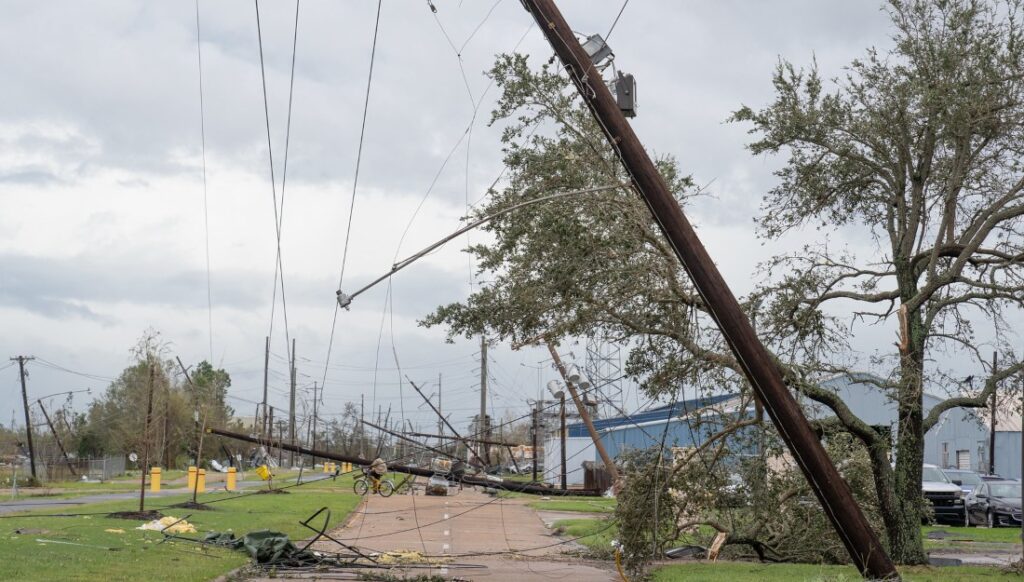
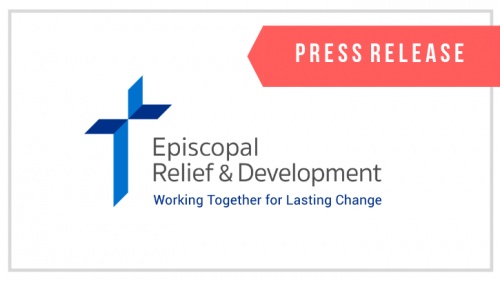
Episcopal Relief & Development Responds to Hurricane Laura
Press Release
September 14, 2020
Episcopal Relief & Development is responding to Hurricane Laura by supporting local Church partners in Louisiana and Texas as they provide emergency assistance to vulnerable groups impacted by the storm. Dioceses are distributing food and building and cleaning supplies, as well as arranging services such as temporary housing, laundry and building and vehicle repairs.
On August 27, Hurricane Laura made landfall on the Gulf Coast as a Category 4 hurricane with maximum sustained winds of 150 mph – only 7 mph short of Category 5 classification – causing downed trees in roads and on power lines and damage to homes and structures throughout eastern Texas and western Louisiana.
Episcopal Relief & Development’s US Disaster Program team was in close contact with dioceses along the Gulf Coast in the days leading up to the storm making landfall as the partners mobilized disaster preparation and response plans. Staff continues to provide expertise and guidance as partners determine the most urgent unmet needs in their communities.
Hurricane Laura made direct impact on the Lake Charles, Alexandria, Shreveport, Ruston and Monroe areas of western Louisiana, causing catastrophic damage to buildings and infrastructure, including a fire and chemical leak in a chemical plant and significant damage to the public water system. With Episcopal Relief & Development’s support, the Episcopal Diocese of Western Louisiana is distributing emergency assistance such as gas, food, personal care and cleaning supplies to marginalized communities who evacuated or whose homes were damaged or destroyed. The diocese is also arranging other aid such as car repairs to allow individuals to go to work, access laundry services and replace medications that were lost in the storm.
The Episcopal Diocese of Texas is leveraging local connections and their extensive experience in disaster response to provide building materials such as tarps, nails and contractor trash bags to a regional distribution center. The diocese is also supplying gift cards for food and other supplies to impacted families. Additionally, diocesan leaders are arranging temporary housing in local motels and hotels for people in need of shelter.
As many as 10,000 evacuees from southwest Louisiana sought shelter in New Orleans. COVID-19 restrictions and safety protocols have complicated traditional sheltering efforts. Many of the evacuees are in hotels throughout the area, provided by the City of New Orleans. The Episcopal Diocese of Louisiana is supporting these individuals and families with basic needs such as food, clothing and gas, as well as to assist in purchasing supplies for their homes when they are able to safely return.
“Because of the Gulf Coast dioceses’ experiences responding to disasters and community connections, they have been able to begin responding to unmet needs created by Hurricane Laura, even in the midst of the COVID-19 pandemic,” said Lura Steele, Program Officer, US Disaster Program.
Please pray for the individuals and families affected by the storm. Donations to the Hurricane Relief Fund will help Episcopal Relief & Development and Church partners continue to respond to the needs of the vulnerable communities impacted by Hurricane Laura and other tropical storms and hurricanes. Learn more about Episcopal Relief & Development’s US Disaster Program and download resources to help you prepare for a disaster here.
For over 75 years, Episcopal Relief & Development has been working together with supporters and partners for lasting change around the world. Each year the organization facilitates healthier, more fulfilling lives for more than 3 million people struggling with hunger, poverty, disaster and disease. Inspired by Jesus’ words in Matthew 25, Episcopal Relief & Development leverages the expertise and resources of Anglican and other partners to deliver measurable and sustainable change in three signature program areas: Women, Children and Climate.
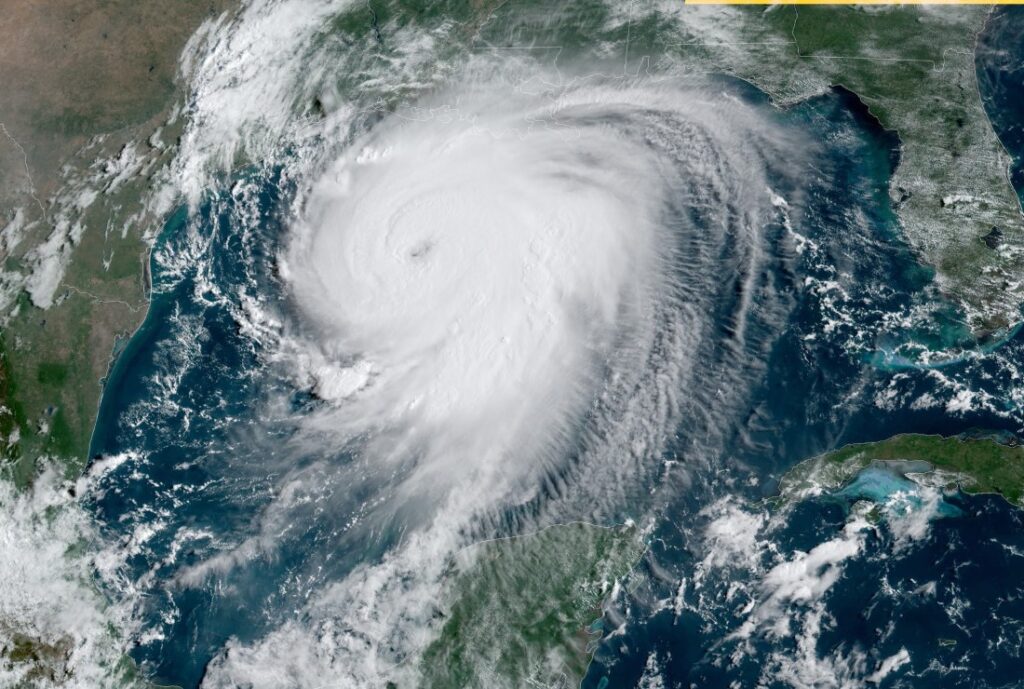
 Continuing to Support Dioceses in the Gulf Coast in Response to Hurricane Laura
Continuing to Support Dioceses in the Gulf Coast in Response to Hurricane Laura
Web Statement
September 1, 2020
Episcopal Relief & Development continues to support Episcopal dioceses in the Gulf Coast as they assess the impact of Hurricane Laura and provide emergency assistance to vulnerable communities. Many of these areas were heavily affected by COVID-19 and still recovering from previous hurricanes.
Hurricane Laura made landfall near Cameron, Louisiana, near the Texas border, on August 27 as a Category 4 hurricane and moved northeast into Arkansas. The Lake Charles area, approximately 35 miles inland, was particularly impacted and many people remain without water and power as of Tuesday morning. As is often the case after a disaster, cell phone service also remains spotty, making communication difficult.
Episcopal Relief & Development’s US Disaster team remains in close contact with the Episcopal Church in Arkansas and the Episcopal dioceses of Louisiana, Western Louisiana, Mississippi and Texas. The dioceses of Western Louisiana and Texas experienced the most damage from the storm surge, high winds and heavy rains. While the Diocese of Louisiana was impacted to a lesser degree by storm damage, it received an influx of evacuees from western Louisiana. Diocesan leaders are checking in with the community and assessing needs to determine the most effective emergency response.
“It is important to remember that disasters have three phases: rescue, relief and recovery,” said Lura Steele, Program Officer, Episcopal Relief & Development. “We are still early in the life-cycle of Hurricane Laura and safety is a primary concern.”
The COVID-19 pandemic is further complicating rescue and relief efforts. Diocesan staff and volunteers were already providing assistance to communities impacted by high rates of COVID-19 and the economic effects of the associated shutdowns, when the hurricane struck, adding more challenges for already vulnerable people. Additionally, dioceses have had to evaluate and adapt disaster response plans with added safety protocols to reduce the spread of the virus As a result, dioceses are not equipped to manage out-of-town volunteers safely.
“We understand and are grateful that many people from other geographic areas want to help,” continued Steele. “What’s most helpful right now is monetary donations rather than the donation of physical goods that require sorting and storage or volunteers traveling to the area.”
Donations to the Hurricane Relief Fund will support emergency assistance for communities impacted by Hurricane Laura and other storms. Information to include in a church bulletin or electronic bulletin this weekend can be found here.
For over 75 years, Episcopal Relief & Development has been working together with supporters and partners for lasting change around the world. Each year the organization facilitates healthier, more fulfilling lives for more than 3 million people struggling with hunger, poverty, disaster and disease. Inspired by Jesus’ words in Matthew 25, Episcopal Relief & Development leverages the expertise and resources of Anglican and other partners to deliver measurable and sustainable change in three signature program areas: Women, Children and Climate.

Responding as Hurricane Laura Makes Landfall
Web Statement
August 27, 2020
Episcopal Relief & Development’s US Disaster Program continues to support Episcopal dioceses in the Gulf Coast, providing technical support as they prepare for and respond to Hurricane Laura.
Since Monday, August 24, members of the US Disaster team have been holding daily coordination calls with Episcopal dioceses in the Gulf Coast, including the Episcopal Church in Arkansas and the Episcopal dioceses of Louisiana, Western Louisiana, Mississippi, Texas and West Texas. Impacted dioceses are monitoring Hurricane Laura’s path and making preparations. Prior to the storm’s landfall, the dioceses of Texas and Western Louisiana activated their crisis communications plans and conducted pastoral and technical check-ins with local clergy. Both bishops and diocesan leaders have been working to find ways to assist marginalized communities, such as those without homes, in preparation for the storm’s arrival.
Hurricane Laura made landfall early Thursday morning as a Category 4 storm and was downgraded to a Category 3 storm a few hours later. The dioceses of Texas and Western Louisiana have initiated assessments of the hurricane’s impact and are evaluating potential responses for once the storm has cleared. The Episcopal Diocese of Western Louisiana is reporting water and power outages and other damage in Lake Charles and other impacted areas.
“COVID-19 is adding an additional level of complexity to evacuations and relief efforts to Hurricane Laura,” said Lura Steele, Program Officer, Episcopal Relief & Development. “It is inspiring to see the level of dedication to serving vulnerable communities being demonstrated by the bishops, diocesan leaders and disaster preparedness and response teams.”
Additionally, the US Disaster Program staff continues to coordinate with dioceses in northern California as they discern potential responses to the record-breaking wildfires that are causing evacuations and widespread concerns about air quality.
Please pray for all those affected by Hurricane Laura. Donations to the Hurricane Relief Fund will enable Episcopal Relief & Development to support emergency assistance efforts in response to Hurricane Laura and other storms.
For over 75 years, Episcopal Relief & Development has been working together with supporters and partners for lasting change around the world. Each year the organization facilitates healthier, more fulfilling lives for more than 3 million people struggling with hunger, poverty, disaster and disease. Inspired by Jesus’ words in Matthew 25, Episcopal Relief & Development leverages the expertise and resources of Anglican and other partners to deliver measurable and sustainable change in three signature program areas: Women, Children and Climate.
 Responding to Storms in the Gulf Coast
Responding to Storms in the Gulf Coast
Web Statement
August 25, 2020
Episcopal Relief & Development is supporting Episcopal dioceses in the Gulf Coast as they prepare for what was projected to be consecutive hurricanes Laura and Marco this week. While Tropical Storm Marco has dissipated, Laura is projected to be a Category 3 hurricane when it makes landfall on Wednesday or early Thursday.
The organization’s US Disaster team is holding daily coordination calls with the Episcopal dioceses of Louisiana, Western Louisiana, Mississippi, Central Gulf Coast, Texas and West Texas as they prepare for and monitor the storms. Dioceses are in close contact with leaders in their churches to determine how the potential rainfall, winds, flooding and storm surge are affecting communities in their areas. Several dioceses have already tested AlertMedia, a cloud-based mass messaging system that was successfully used after Hurricanes Harvey, Irma and Florence to enable the dioceses to communicate with staff and congregational leaders to share information and assess needs.
“While two storms within a 48 hour period is unprecedented in recent history, leaders throughout this region have extensive experience preparing for and responding to disasters, and have powerful networks of relationships and ministries in their communities,” said Lura Steele, Program Officer, Episcopal Relief & Development. “This wealth of experience and deep community connections will allow them to effectively serve those most in need.”
Donations to the Hurricane Relief Fund will enable Episcopal Relief & Development respond to these and other storms. Please pray for those affected by Hurricane Laura and Tropical Storm Marco.
For over 75 years, Episcopal Relief & Development has been working together with supporters and partners for lasting change around the world. Each year the organization facilitates healthier, more fulfilling lives for more than 3 million people struggling with hunger, poverty, disaster and disease. Inspired by Jesus’ words in Matthew 25, Episcopal Relief & Development leverages the expertise and resources of Anglican and other partners to deliver measurable and sustainable change in three signature program areas: Women, Children and Climate.
Photo courtesy of NASA


